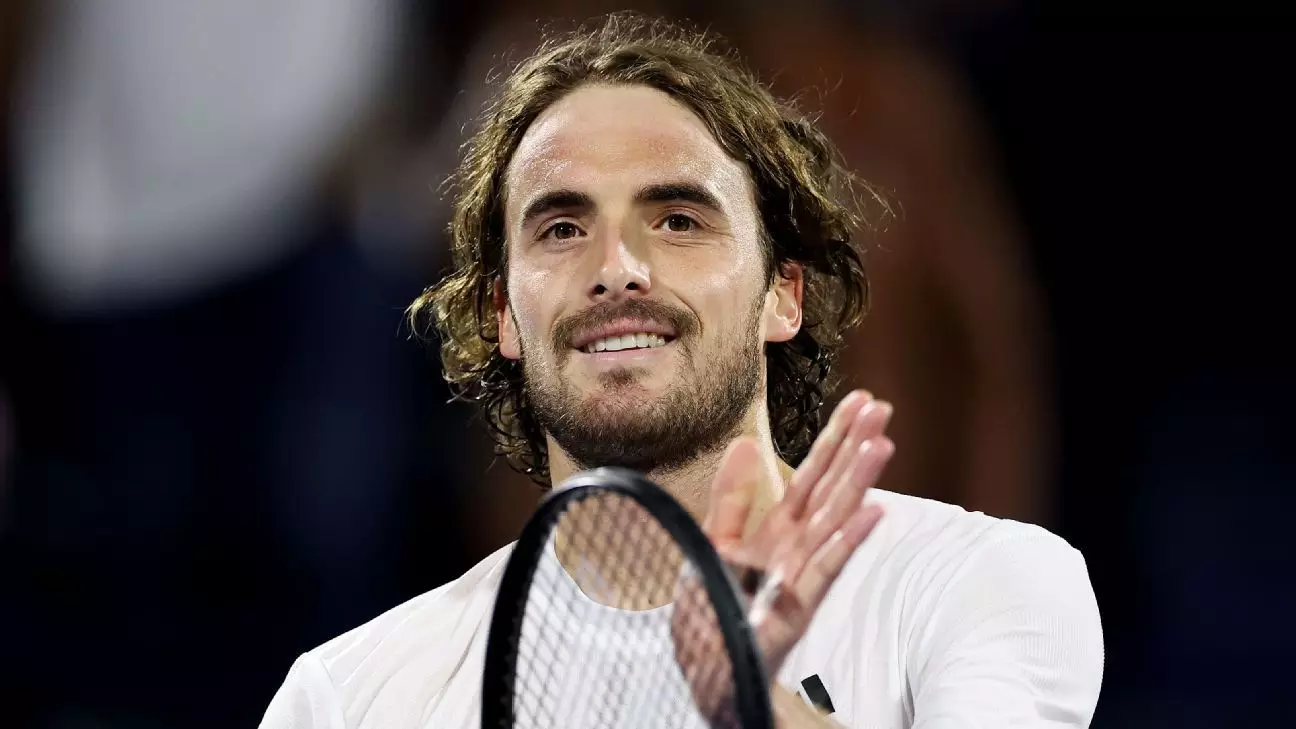In the ruthless world of professional tennis, the temptation to chase external expertise often overshadows the fundamental bonds that initially fostered a player’s growth. Stefanos Tsitsipas’s decision to bring back his father, Apostolos, as his coach marks a compelling declaration: sometimes, the path to resurgence lies in rediscovering the core support system that first believed in you. This move defies conventional wisdom that increasingly champions high-profile, star-studded coaching teams, instead highlighting the profound impact of loyalty, familiarity, and emotional grounding.
By reinstating his father, Tsitsipas is essentially betting on a foundation built on shared history and unconditional trust. While the tenure with Goran Ivanisevic, one of the sport’s coaching giants responsible for Novak Djokovic’s victories, appeared promising briefly, recent results cast doubt on its efficacy. The Greek player’s slump in form—falling to 30th in the world rankings and struggling to advance past early rounds—raises questions about whether external coaching can compensate for internal harmony. For Tsitsipas, this might be less about technical adjustments and more about emotional stability, an element often overlooked amidst the glitter of big-name partnerships.
Questioning the Modern Tennis Paradigm
The tennis landscape has been increasingly dominated by marquee coaching signings, where the focus often shifts toward the mentor’s legacy rather than the player’s inner confidence. Tsitsipas’s abrupt split with Ivanisevic, followed by this emotional return to his father, underscores a critical critique of this trend. It suggests that perhaps, in the pursuit of greatness, players risk losing themselves in the machinery of high-profile coaching, forgetting that tennis is as much about mental resilience as technical skill.
His social media post signals an awareness that true progress might be rooted in authenticity—going back to the person who fundamentally believes in him. It hints at a deeper philosophy: success is not solely dictated by external guidance but also by internal conviction and personal connection. This decision could serve as a catalyst for other players to reevaluate the importance of emotional labor and faith in their roots, instead of merely chasing the next big coaching name or trend.
The Personal Over the Professional: A Bold Step Forward
Reclaiming his partnership with his father is a bold move by Tsitsipas that can inspire a broader conversation about what it means to thrive in a sport that often values results over relationships. It echoes the notion that psychological comfort and personal identity are vital ingredients for sustained excellence. In tennis, where mental strength is often the deciding factor in close matches, having a trusted confidant by your side can be more potent than any tactical overhaul.
Tsitsipas’s tumultuous season—marked by early exits and disappointing rankings—might be a symptom of internal discord or a disconnect with his current coaching setup. Returning to his father symbolizes an act of self-awareness, acknowledging that perhaps the most significant growth begins from within. His statement about being grateful to share the court with his father again emphasizes a recognition that love and loyalty are powerful motivators, and that these qualities can ultimately forge a path back to success when external tools prove insufficient.
This decision may challenge the prevailing narrative in tennis coaching, suggesting that sometimes, going back to one’s roots isn’t a step back but a strategic move forward. While critics may argue about the lack of a “big-name” coach, Tsitsipas’s bold pivot emphasizes that authenticity and trust might be the real keys to unlocking his potential. In a sport obsessed with records and rankings, perhaps the greatest victory lies in rediscovering what truly matters—faith in oneself, rooted in the unwavering belief of those who know you best.


Leave a Reply